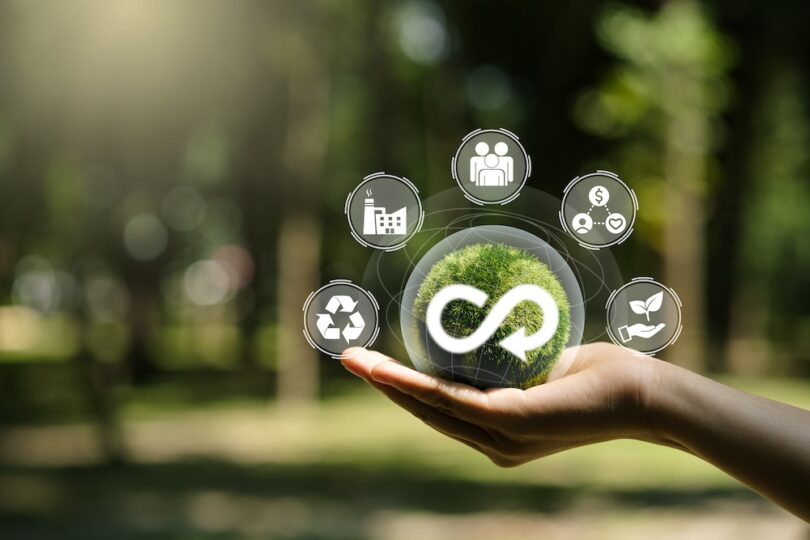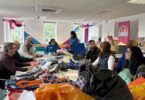In a world grappling with waste management and environmental degradation, the circular economy shines as a beacon of hope. It’s not only about reducing waste; it’s about creating sustainable business models that bring value to both the economy and the planet. This blog post will explore inspiring examples of businesses that have embraced the circular economy, showcasing innovative approaches to sustainability. Whether you’re a budding entrepreneur or a conscious consumer, these stories will ignite your passion for upcycling trends and sustainable practices.
What is the Circular Economy?
The circular economy is a model that contrasts sharply with the traditional linear economy. Instead of the ‘take, make, dispose’ approach, the circular economy focuses on designing products for longevity, reusability, and recycling. Businesses operating under this model aim to eliminate waste and reduce the environmental impact of their operations.
Why Circular Economy Matters
The importance of the circular economy cannot be overstated. It offers a pathway to sustainable growth by maximising resource efficiency, reducing waste, and promoting economic resilience. In a world facing resource scarcity and environmental challenges, the circular economy provides a viable solution.
Patagonia – A Pioneer in Upcycling Trends
Commitment to Sustainability
Patagonia, the outdoor clothing brand, stands as a pioneer in the circular economy. Their commitment to the environment is evident in their innovative business practices. Patagonia encourages customers to repair, reuse, and recycle their clothing, reducing the need for new production.
Worn Wear Program
Their Worn Wear program is a perfect example of upcycling trends in action. Customers can trade in used Patagonia items for store credit, which are then repaired and resold. This not only extends the life of the products but also reduces waste significantly.
Environmental Responsibility
Patagonia’s approach to circular economy is not just a marketing gimmick; it’s a core part of their business model. Their dedication to environmental responsibility has set a benchmark for other companies to follow.
IKEA – Reinventing Furniture with Circular Economy
Circular IKEA Initiative
IKEA, the global furniture giant, has embraced the circular economy with their Circular IKEA initiative. This program focuses on designing products that can be easily disassembled, repaired, and recycled.
Second Life for Furniture
IKEA offers a buy-back service where customers can return old furniture in exchange for store credit. The returned items are then refurbished and sold in IKEA outlets, giving them a second life and reducing waste.
Sustainable Product Design
By incorporating sustainable product design principles, IKEA is making strides towards a more circular business model. Their efforts showcase how large corporations can contribute to a sustainable future.
Loop – Revolutionising Packaging
Zero-Waste Packaging System
Loop is an innovative company revolutionising the packaging industry with their zero-waste packaging system. Partnering with major brands, Loop provides reusable packaging for everyday products, which are collected, cleaned, and refilled.
Partnering with Big Brands
Brands like Nestle, Unilever, and PepsiCo have joined forces with Loop to offer consumers sustainable alternatives to single-use packaging. This collaboration highlights the potential of circular economy solutions in reducing plastic waste.
Consumer Convenience
Loop’s model not only benefits the environment but also offers convenience to consumers. By providing a seamless return and refill process, Loop ensures that sustainability doesn’t come at the cost of convenience.
TerraCycle – Turning Waste into Resources
Innovative Recycling Solutions
TerraCycle is a global leader in recycling hard-to-recycle materials. Their innovative solutions turn waste into valuable resources, demonstrating the potential of the circular economy.
Zero Waste Boxes
One of TerraCycle’s notable programs is the Zero Waste Box, which allows consumers and businesses to recycle various types of waste, from coffee capsules to office supplies. This service makes recycling accessible and effective.
Impact on Waste Reduction
TerraCycle’s efforts have diverted millions of kilograms of waste from landfills, showcasing the tangible impact of circular economy practices. Their model serves as an inspiration for businesses looking to adopt sustainable practices.
Rent the Runway – Fashion Meets Sustainability
Clothing Rental Service
Rent the Runway has disrupted the fashion industry with their clothing rental service. Instead of buying new clothes, customers can rent high-quality garments for special occasions, reducing the demand for fast fashion.
Extending Garment Life
By circulating clothing among multiple users, Rent the Runway extends the life of garments, reducing waste and promoting sustainable consumption. This model demonstrates the potential of circular economy in the fashion industry.
Environmental Benefits
The environmental benefits of clothing rental services are significant. By reducing the need for new production, Rent the Runway contributes to lower carbon emissions and resource consumption.
Bio-bean – Coffee Waste to Energy
Recycling Coffee Grounds
Bio-bean is a company that recycles coffee grounds into valuable products like biofuels and biochemicals. This innovative approach turns waste into a resource, aligning perfectly with the principles of the circular economy.
Clean Energy Production
By converting coffee waste into biofuels, Bio-bean contributes to clean energy production. Their efforts reduce reliance on fossil fuels and promote sustainable energy solutions.
Partnership with Businesses
Bio-bean partners with coffee shops and businesses to collect used coffee grounds, showcasing the potential of collaboration in achieving circular economy goals. Their model is a testament to the power of innovation in waste management.
Fairphone – Ethical and Sustainable Electronics
Modular Design
Fairphone is an ethical smartphone company focused on sustainability. Their phones feature a modular design, allowing users to easily repair and upgrade their devices, reducing electronic waste.
Fair Trade Practices
In addition to their sustainable design, Fairphone is committed to fair trade practices. They source materials responsibly and ensure fair working conditions for their supply chain workers.
Longevity and Repairability
Fairphone’s emphasis on longevity and repairability sets them apart in the electronics industry. Their approach demonstrates the potential of circular economy in creating sustainable and ethical products.
Algramo – Refill Revolution
Reusable Packaging
Algramo is revolutionising the way we buy household products with their refillable packaging system. Customers can purchase products in reusable containers, reducing single-use plastic waste.
Smart Dispensers
Using smart dispensers, Algramo makes it easy for customers to refill their containers at participating stores. This model promotes sustainable consumption and reduces packaging waste.
Community Impact
Algramo’s approach not only benefits the environment but also supports local communities by offering affordable and sustainable options. Their model showcases the social benefits of circular economy practices.
BioMason – Revolutionising Construction
Sustainable Building Materials
BioMason is changing the construction industry with their sustainable building materials made from bacteria. Their approach reduces the need for traditional cement, which is a major source of carbon emissions.
Eco-Friendly Production
By using biological processes, BioMason produces building materials with significantly lower environmental impact. Their innovation highlights the potential of circular economy in the construction sector.
Industry Collaboration
BioMason collaborates with construction companies to integrate their sustainable materials into building projects. Their model showcases the power of innovation and collaboration in achieving circular economy goals.
The Future of Circular Economy
Growing Adoption
The adoption of circular economy practices is growing across industries. From fashion to construction, businesses are recognising the benefits of sustainable models and making significant strides towards a circular future.
Consumer Awareness
Consumer awareness and demand for sustainable products are driving the shift towards circular economy. As more people prioritise eco-friendly choices, businesses are adapting to meet these expectations.
Continued Innovation
The future of circular economy is bright, with continued innovation leading the way. Businesses are finding creative solutions to reduce waste and promote sustainability, paving the way for a more sustainable world.
Conclusion
The circular economy offers a promising path towards sustainability, with businesses across various sectors showcasing innovative approaches to reduce waste and promote responsible consumption. From Patagonia’s upcycling trends to BioMason’s sustainable building materials, these examples highlight the potential of circular economy in creating a better future. By adopting circular economy practices, businesses can not only achieve environmental goals but also gain a competitive advantage. If you’re inspired to make a difference, consider exploring circular economy solutions for your own business. Together, we can build a more sustainable world.







